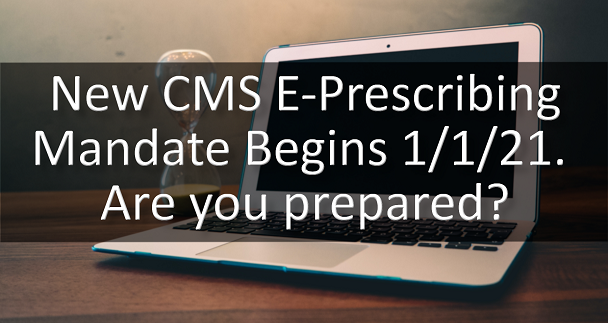

----- Blog Index / New-CMS-E-Prescribing-Mandate-Begins-January-1st-2021-Are-you-prepared [MDToolbox Staff] [2020-09-02]

In just four months from now, starting in January 2021, CMS will require electronically prescribing controlled substances (EPCS) for Medicare Part D prescribers.
The Substance Use-Disorder Prevention that Promotes Opioid Recovery and Treatment (SUPPORT) for Patients and Communities Act, HR6 - Public Law 115-271, was signed into law on October 24th, 2018. The Act’s primary purpose is to combat the growing opioid epidemic by:
One of the more than 60 policies included is the Every Prescription Conveyed Securely Act. This Act will require prescribers to electronically prescribe controlled substances for Schedule II-V drugs covered under a Medicare Part D or Medicare Advantage prescription drug plan. While many states have enacted their own laws requiring e-Prescribing, this is the first federal mandate for EPCS.
According to Surescripts, 55.2% of prescribers in the US are currently enabled for EPCS. This number is up drastically from only 32% in 2018 when the SUPPORT Act was signed. The increase is likely due to state-level mandates, as well as the rise of telemedicine usage during the Covid-19 pandemic.
Additional relevant requirements set in place by the SUPPORT Act and CMS rulings that begin in 2021 include:
CMS is currently seeking public comments regarding the EPCS requirement. CMS is requesting input as to whether there should be exceptions provided and if so, what circumstances would qualify prescribers for an EPCS exception. CMS also wants feedback on whether penalties should be imposed for noncompliance with the EPCS mandate and if so, what the penalties should be. Comments can be made until October 5th, 2020. These rules and exceptions are expected to be provided before the 2021 deadline.
MDToolbox applauds this bipartisan legislation. We are continually encouraging providers to take advantage of the technologies we provide including Electronic Prescribing of Controlled Substances (EPCS), Electronic Prior Authorization (e-PA) and Real-time Price Transparency as they are important tools to use in fighting the devastating opioid epidemic and making electronic prescribing as convenient as possible for prescribers. Putting these federal mandates in place is an important step towards fully utilizing the available technology to save lives.